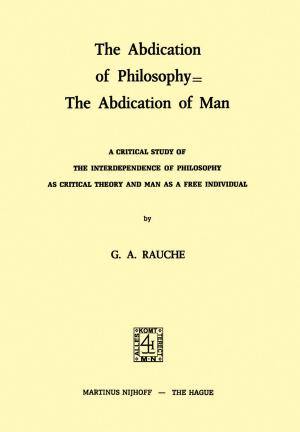Education for Self-transformation
Essay Form as an Educational Practice
Nonfiction, Reference & Language, Education & Teaching, Educational Theory, Philosophy & Social Aspects, Teaching, Teaching Methods| Author: | Duck-Joo Kwak | ISBN: | 9789400724013 |
| Publisher: | Springer Netherlands | Publication: | October 12, 2011 |
| Imprint: | Springer | Language: | English |
| Author: | Duck-Joo Kwak |
| ISBN: | 9789400724013 |
| Publisher: | Springer Netherlands |
| Publication: | October 12, 2011 |
| Imprint: | Springer |
| Language: | English |
Exemplifying what it advocates, this book is an innovative attempt to retrieve the essay form from its degenerate condition in academic writing. Its purpose is to create pedagogical space in which the inner struggle of ‘lived experience’ can articulate itself in the first person. Working through essays, the modern, ‘post-secular’ self can guide, understand, and express its own transformation. This is not merely a book about writing methods: it has a sharp existential edge.
Beginning by defining key terms such as ‘self-transformation’, Kwak sketches the contemporary debates between Jürgen Habermas and Charles Taylor on the status of religious language in the public domain, and its relationship to secular language. This allows her to contextualize her book’s central questions: how can philosophical practice reduce the experiential rift between knowledge and wisdom? How can the essay form be developed so that it facilitates, as praxis, pedagogical self-transformation? Kwak develops her answers by working through ideas of George Lukács and Stanley Cavell, of Hans Blumenberg and Søren Kierkegaard, whose work is much less familiar in this context than it deserves to be.
Kwak’s work provides templates for new forms of educational writing, new approaches to teaching educators, and new ways of writing methodology for educational researchers. Yet the importance of her ideas extends far beyond teaching academies to classroom teachers, curriculum developers – and to anyone engaged in the quest to lead a reflective life of one’s own.
Exemplifying what it advocates, this book is an innovative attempt to retrieve the essay form from its degenerate condition in academic writing. Its purpose is to create pedagogical space in which the inner struggle of ‘lived experience’ can articulate itself in the first person. Working through essays, the modern, ‘post-secular’ self can guide, understand, and express its own transformation. This is not merely a book about writing methods: it has a sharp existential edge.
Beginning by defining key terms such as ‘self-transformation’, Kwak sketches the contemporary debates between Jürgen Habermas and Charles Taylor on the status of religious language in the public domain, and its relationship to secular language. This allows her to contextualize her book’s central questions: how can philosophical practice reduce the experiential rift between knowledge and wisdom? How can the essay form be developed so that it facilitates, as praxis, pedagogical self-transformation? Kwak develops her answers by working through ideas of George Lukács and Stanley Cavell, of Hans Blumenberg and Søren Kierkegaard, whose work is much less familiar in this context than it deserves to be.
Kwak’s work provides templates for new forms of educational writing, new approaches to teaching educators, and new ways of writing methodology for educational researchers. Yet the importance of her ideas extends far beyond teaching academies to classroom teachers, curriculum developers – and to anyone engaged in the quest to lead a reflective life of one’s own.















